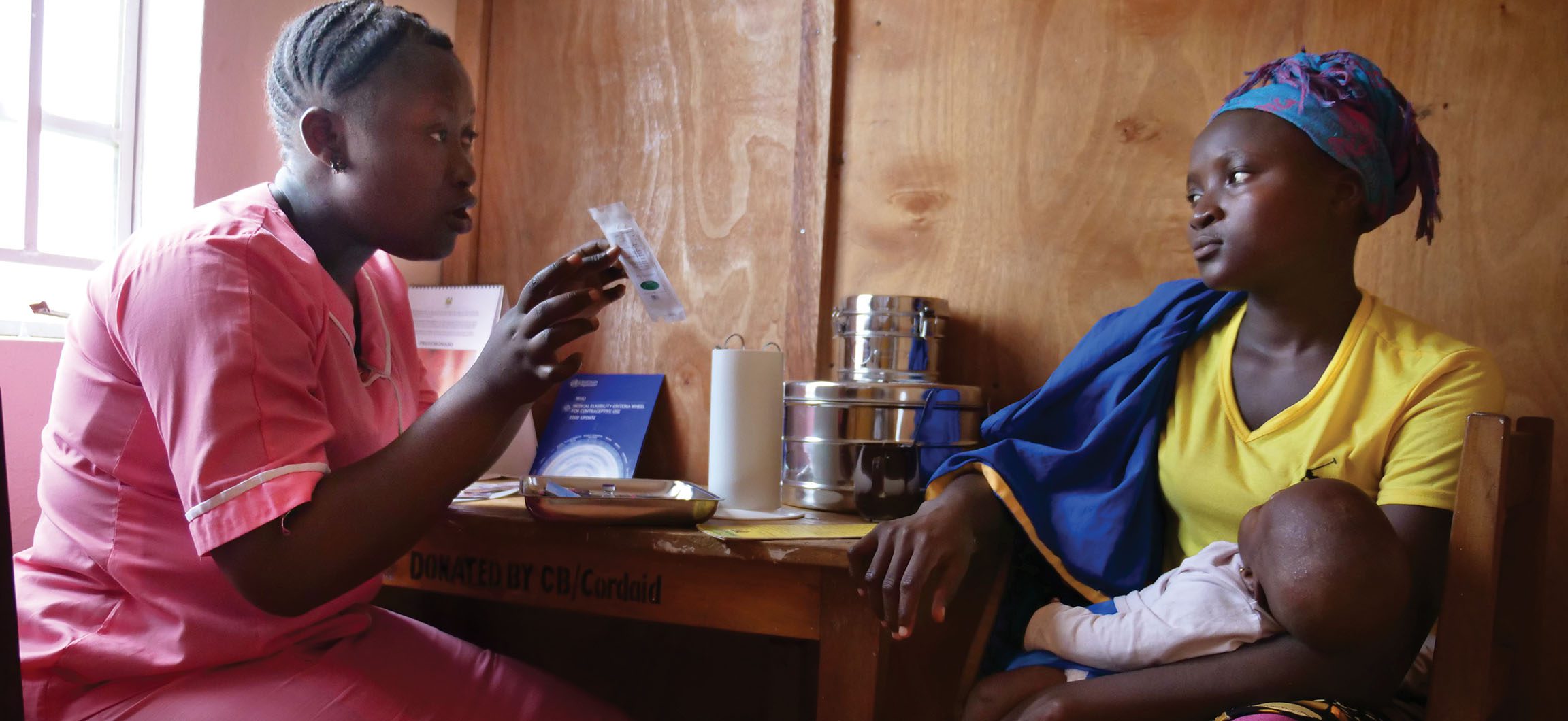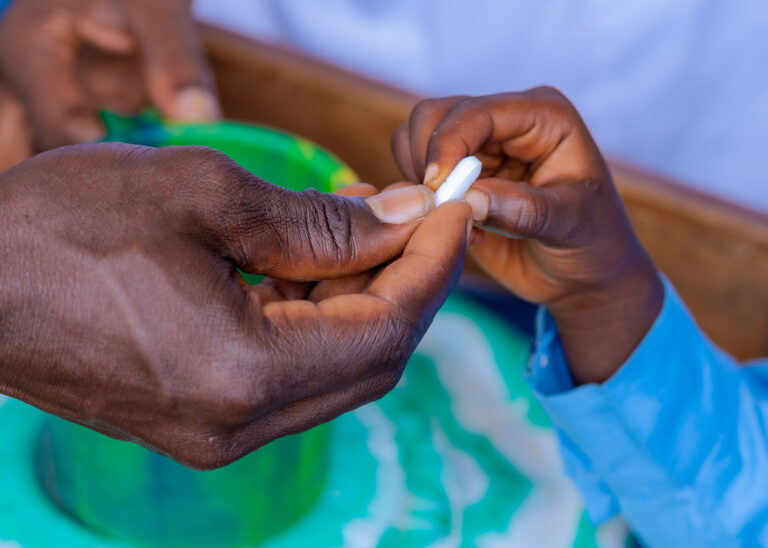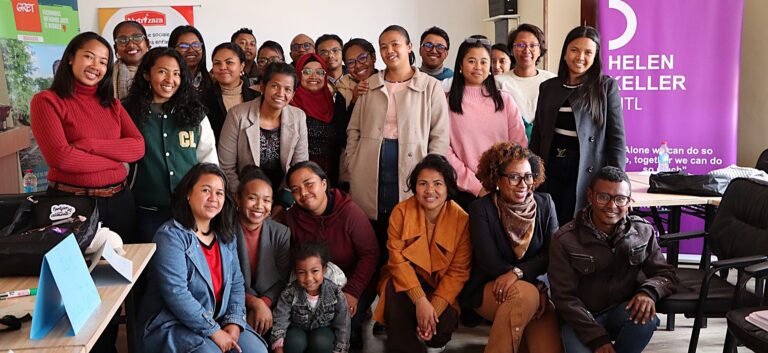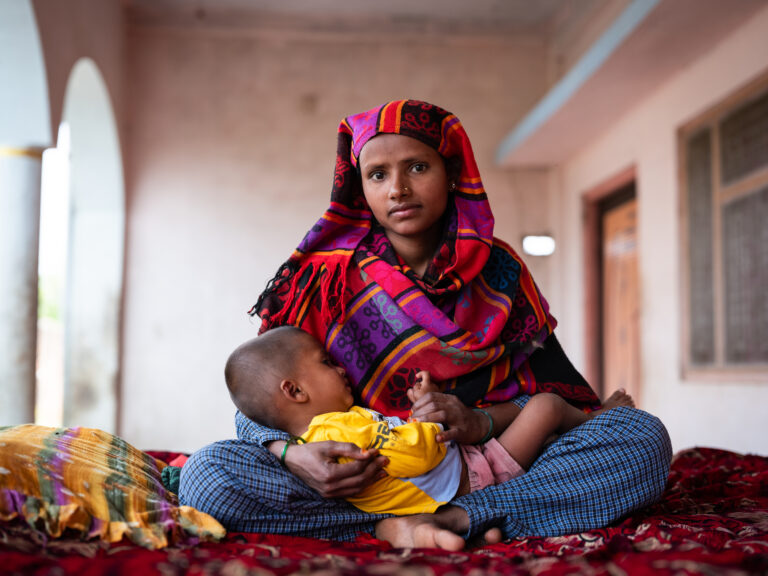Looking Bravely: Supporting Nutrition for Expectant and Newborn Mothers
We recently spoke with Anita Agartha Kargbo, a program officer for nutrition in Sierra Leone. Anita has been part of the nutrition and research team at Helen Keller — which she calls her “dream organization” — since joining as an intern in 2010. With degrees in community development, nutrition, and agriculture, Anita helps families, especially newborn mothers, learn about the importance of diet in supporting overall health and disease prevention.
Tell us about your role at Helen Keller.
I work on all our nutrition programming, which is focused on supporting mothers and young children. We provide nutrition education at health facilities and, when possible, at families’ homes. We are also making the transition from distributing vitamin A and other micronutrients through mass campaigns to a model that allows children under age five and young mothers to receive these key supplements every six months in routine health visits.
Why are micronutrients so important?
During pregnancy, a woman’s daily requirement of micronutrients increases by as much as 50 percent to support healthy fetal development. This includes vitamins — especially A, B12, C, D, E, and folic acid — and minerals — such as iron, zinc, iodine, copper, and selenium. However, in many low-income countries, micronutrient deficiencies are common among pregnant women because their diets lack the right diversity of fruits, vegetables, animal proteins, and fortified foods.
How do you counsel families who are reluctant to receive supplements?
To help parents understand what may happen if they don’t give their children these protections, I compare the past to the present, and I give them examples of what others in their community have experienced when they didn’t receive treatment. I remind them, “over the past seven to eight years, we have been having a lot of outbreaks of illness. Children can go blind before they are five years old.”
What barriers do families face in finding enough nutritious foods, and how does Helen Keller support them?
A huge barrier is the fact that healthy foods often cost a lot more. And like parents everywhere, mothers in Sierra Leone struggle with competing priorities and a lack of time. They must also cope with poor information about nutrition and a rapidly changing environment that affects the availability of food.
Helen Keller helps families learn what good nutrition is and how to improve their dietary habits. We also support agriculture programs that help families grow their own nutritious foods. And when a woman’s garden has high yields, selling the surplus helps the family afford a greater variety of healthy foods.
Can you share a particularly memorable experience?
I once had a lengthy talk with a mother who was crying and actually wanted to give me one of her children because she felt couldn’t care for him properly. I told her, “I know it’s hard to find time, but you have to take him to the health facility.”
“I don’t have money for transport,” she said, “and it is too far to walk.” I gave her money, and she made a promise to take her boy for the nutritional support he needed. When her child got better, she was so happy. I was, too, because I was able to help.

What successes make you most proud?
I’ve visited families in all the districts in my country to talk about the importance of children getting vitamin A and other care. I’m especially proud of our success in partnering with district health management teams to implement a vital program that encourages newborn mothers to bring their six-month-old babies for a key health check and their first dose of vitamin A. It is really improving families’ health.
How does leading as a woman support your success?
I have a passion for this work.
Anita Agartha Kargbo
I’m the kind of person who always wants to learn, and I have passion for this work. I’m always happy when I spend time with mothers and counsel them about what their children should and shouldn’t eat. When people see me, they are happy, especially the girls and women. And when I see the way they respond, that always moves me. It inspires me to do more.

You can support mothers around the world, giving them and their children the opportunity to discover their true potential.



